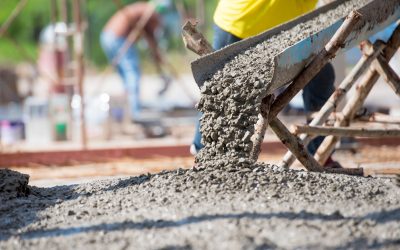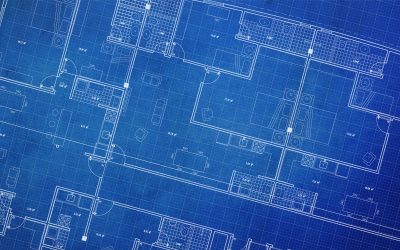Maryland Home Improvement License
Based on Home Improvement Law, Door-to-Door Sales, Labor Laws, Safety Regulations, and Estimating
Apply for the license
Having a license establishes your credibility and reliability to work in Maryland.
c. Examination: Once the application is processed and deemed complete, applicants will be scheduled to take the written examination. Passing this exam is a prerequisite for obtaining the license.
d. Background Check: The MHIC will conduct a criminal background check on the applicant to ensure compliance with state regulations.
e. Issuance of License: Upon successful completion of the above steps, the MHIC will issue the Maryland Home Improvement License to the contractor.
4. Scope of Work:
With a Maryland Home Improvement License, contractors are authorized to perform a wide range of home improvement work, including but not limited to:
a. Remodeling: This includes interior and exterior remodeling projects such as kitchen renovations, bathroom upgrades, room additions, and structural alterations.
b. Repairs: Contractors can undertake various repair jobs, including fixing plumbing issues, electrical problems, roofing damage, and other maintenance tasks.
c. Renovations: Home improvement contractors are skilled in renovating outdated or deteriorating properties to enhance their aesthetic appeal, functionality, and energy efficiency.
d. Installation: Contractors can install new fixtures, appliances, flooring, windows, doors, siding, and other components as part of home improvement projects.
e. Landscaping: While landscaping may require additional licensing or permits depending on the scope of work, home improvement contractors can often undertake landscaping tasks such as patio construction, deck installation, and garden enhancements.
f. Restoration: In the event of fire damage, water damage, or other disasters, licensed contractors can undertake restoration efforts to rebuild and repair affected properties.
Conclusion:
Obtaining a Maryland Home Improvement License is a crucial step for contractors looking to legally operate in the state. By fulfilling the necessary requirements, including experience, financial solvency, insurance coverage, passing an examination, and undergoing a background check, contractors can obtain this license and engage in a variety of home improvement projects. The license not only provides legal authorization but also instills confidence in consumers that the contractor meets certain competency and ethical standards. With the scope of work permitted under this license, contractors can contribute to enhancing and maintaining residential properties across Maryland, ensuring the safety, comfort, and satisfaction of homeowners.
About the Maryland Home Improvement License
Books needed for the Maryland Home Improvement License Exam:
- Maryland NASCLA Contractors Guide to Business, Law and Project Management, 6th Edition
- Maryland NASCLA Home Improvement Salesperson Reference Guide, 5th edition
Exam Provider
There are specific fees associated with the license application and renewal. The standard license fee is $325, with a renewal fee of $305. For sales contractors, the fee is reduced to $75. Additionally, applicants are required to submit various documents alongside their application:
- Credit report
- $75 for the Guaranty Fund
- Proof of liability insurance
In the event of any changes within your business, such as alterations to directors or entity names, or if the business is sold, notification must be provided to the Commission board within 10 days of the change.
Furthermore, applicants with convictions related to home improvement projects must communicate with the Maryland Home Improvement Commission and provide copies of conviction records.
To obtain a home improvement license in Maryland, applicants must meet certain criteria:
- Demonstrate a minimum of two years of experience in home improvement work, construction, or related education.
- Provide evidence of financial stability based on the scale and nature of the business, including a credit report, net worth, and proof of financial solvency. Alternatively, applicants who fail to meet these criteria may opt to purchase a surety bond or secure an indemnitor.
- If representing a corporation, submit articles of incorporation and a Certificate of Good Standing from the Department of Assessments and Taxation.
- Register any trade names with the Commission and the Department of Assessments and Taxation, if applicable, and provide a certificate of trade name registration with the license application.
- Furnish proof of current $50,000 liability insurance with the licensure application.
To register for the licensing exam, contact PSI Examinations.
For those seeking an original license, necessary application forms and supporting documents can be accessed on the Maryland DLLR website. These documents may include:
- Contractor’s Personal Financial Statement
- Co-Owner’s Signature (if assets are co-owned)
- Surety bond forms if financial solvency guidelines are not met, along with relevant indemnitor information.
- PSI Application for the MD HI Exam, including the Experience Verification Form.
Tests Related To Minnesota Home Improvement License
2021 ICC Concrete Manual Exam
2021 ICC Concrete Manual Free TestAre You Ready to Master the ICC Concrete Manual portion of your F11 Exam? Stop spending countless hours wondering if you're studying the right material for...
2015 ICC Concrete Manual Exam
2015 ICC Concrete Manual Free TestFacing the ICC General Contractor Exam With Concrete Questions? Turn That Pressure Into Progress!Are you a contractor stressing over the ICC concrete portions of your exam? From residential foundations to...
ICC F11 Mini Practice Exam
ICC F11 Mini Practice TestUnlocking Your Potential: Conquer the ICC F11 Exam with Confidence Are you ready to embark on a rewarding career in the construction industry? The path to becoming a successful general contractor starts...
What is ICC F11 Exam?
What is the ICC F11 Exam?What is the ICC F11 Exam? Let us know what you think!The ICC F11 Exam is a certification test offered by the International Code Council (ICC) for...
Construction Math Free Test
Construction Math Free Test (All trades) Knowledge needed for multiple licenses. Master Construction Math - Your Free Path to Licensing Success Worried about the math portion of your...
Maryland Home Improvement License Quick Practice Exam
Maryland Home Improvement Quick Practice Test(Maryland) Contractor License Overcome Your MHIC Exam Anxiety - The Proven Path to Success Are you feeling overwhelmed about the Maryland Home...
ICC F14 Roofing License Quick Practice Test
ICC F14 Roofing Quick Practice Test(F14) National Standard License Practice Test Master the ICC F14 Exam: Quick, Focused, and Effective Preparation Feeling overwhelmed by the ICC F14...
Blueprint Reading Free Exam
Blueprint Reading Free Exam(California) Essential Knowledge for many California Trade Licenses Master Blueprint Reading: Your Free Path to Construction Success Are you struggling with...
Ace Your License Exam
Conquering Your License ExamHow to Pass Your Contractor License Exam - The Real Deal Hey there, future licensed contractor! Let's talk about what really matters when it comes to passing your contractor license exam. Spoiler alert: it's not about...
F.A.Q.
Here are some of our frequently asked questions:
Are these the questions that are on the test?
I pass the practice tests with no problem, now what?
Once I pass the protored test, can I do licensed work?
In many jurisdictions, license holders are obligated to undertake ongoing education on a yearly or biennial basis to ensure license renewal.
I can't pass the practice tests. Please help?!
How come you don't bundle the books together with tabs like other websites?
The majority of state licensing exams are designed as OPEN BOOK assessments, indicating that success is not contingent on rote memorization. Instead, the aptitude to swiftly locate answers holds greater significance than committing content to memory. We firmly hold the belief that our Practice Exams serve a dual purpose: not only will they enhance your familiarity with the subject matter at hand, but they will also cultivate your proficiency in promptly and effectively retrieving answers from any reference material.







